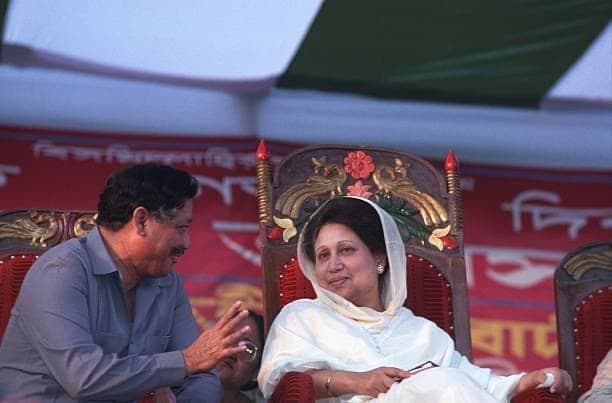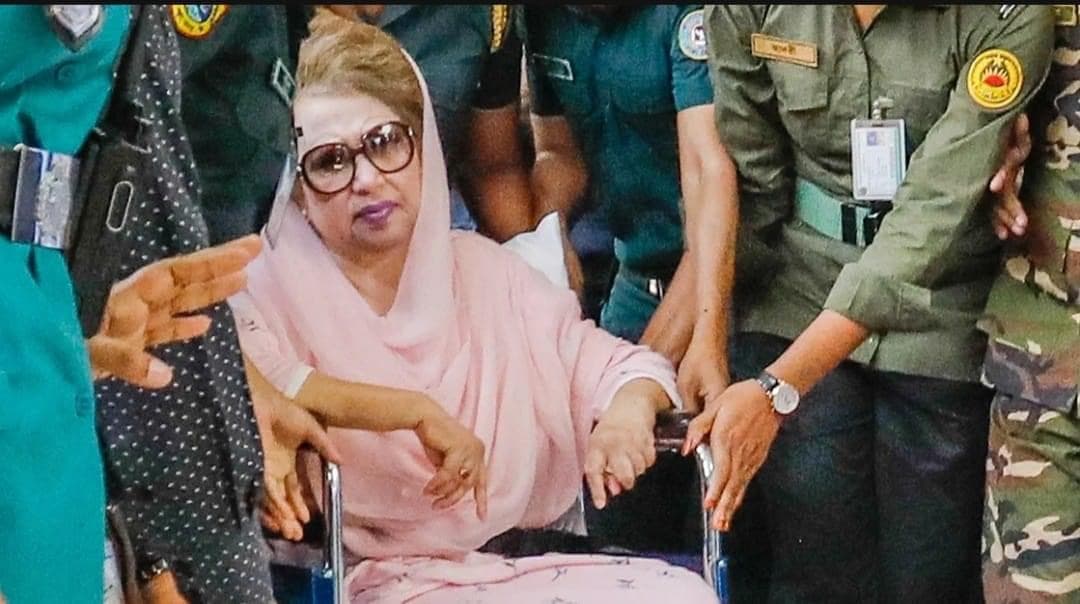What has happened to ex-PM Khaleda Zia?
Bangladesh’s main opposition BNP is leading protests in the hope of ousting Prime Minister Sheikh Hasina before the upcoming election. But party leader Khaleda Zia is nowhere to be seen. What is keeping her silent?
Police in the Bangladeshi capital Dhaka fired rubber bullets and tear gas at anti-government protesters blocking major roads over the weekend. There were also clashes with groups of pro-government marchers. Stones were thrown, vehicles were torched and many people were reportedly injured.
In the wake of a major cost-of-living crisis, the main opposition Bangladesh Nationalist Party (BNP) and its allies have called for Prime Minister Sheikh Hasina to step down before the next election, due to be held by January 2024. They want it to be held under a neutral caretaker government.
So far, the prime minister and her ruling Awami League have rejected the demand.


Where is Khaleda Zia?:
The BNP has been able to organize major rallies despite itself being tossed into chaos in 2018 when its leader, Khaleda Zia, was charged with graft and sentenced to five years in jail. A higher court extended the term to 10 years.
In March 2020, the government allowed her to be released from prison as her health worsened. Conditions for her release stated that “she remains in her Dhaka residence to receive treatment and does not go abroad,” said Bangladeshi Law and Justice Minister Anisul Haq.
Zia, who is at her home in Dhaka, has not been seen at any political events since then. In recent months, she has been admitted to hospital several times due to deteriorating health.
Now 77, Zia became Bangladesh’s first female prime minister in 1991. She was elected for another term in 1996, but her government lasted only a few months. She resigned after introducing a caretaker system on the demand of opposition parties led by the Awami League. In 2001, she was once again elected prime minister and served another five years.


Zia and the current prime minister are considered to be archrivals. When she was jailed in 2018, Zia’s supporters said the corruption charges against her were a politically motivated attempt to keep her out of office.
“Her trial was very controversial,” explained Asif Nazrul, a law professor at the University of Dhaka. “Even at the appeal stage, her punishment was doubled by the high court, which is very rare in Bangladesh or many other common law states,” he told DW.
“She is the most popular leader in Bangladesh in terms of the constituency she won personally in the past parliamentary elections. This incumbent government could not have confronted her popularity except by detaining her,” Nazrul added.

